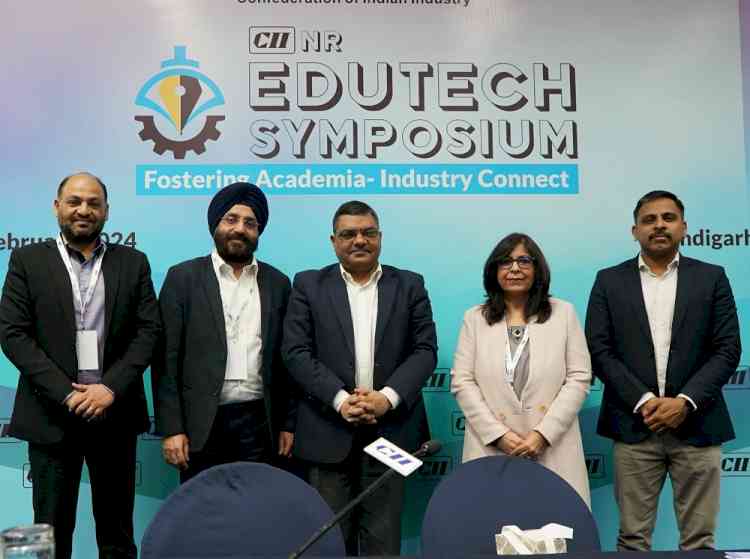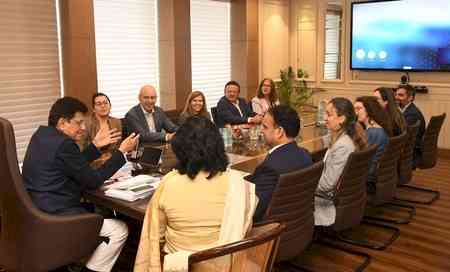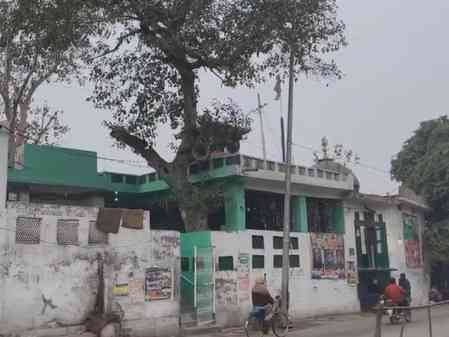CII NR’s Edutech Symposium Highlights Need for Transforming Education for Industrial Innovation
The CII Northern Region EduTech Symposium convened today, bringing together eminent leaders from academia, industry, and government to delve into pivotal topics shaping the education landscape.

Chandigarh, February 28, 2024: The CII Northern Region EduTech Symposium convened today, bringing together eminent leaders from academia, industry, and government to delve into pivotal topics shaping the education landscape.
Vivek Pratap Singh, Principal Secretary, Technical Education & Industrial Training, Government of Punjab stressed the need to stay abreast of the evolving technologies coming into existence to do the skilling accordingly for finest of future workforce to be set in place. He extended an invitation to industries to actively engage with the department, fostering collaboration in skilling endeavors.
“Technology keeps evolving, what is a hype today will get slowly assimilated within the system over time. So, we need to evolve the way skilling is being done by us and focus on ensuring that fundamentals are taught to the students that would help our students adapt to the changes technology brings”, he said.
By opening their doors to students and offering internships, apprenticeships, and mentorship opportunities, industries can play a proactive role in nurturing the next generation of talent. This was highlighted by Dr Pushvinder Jit Singh, Chairman, CII Punjab State Council and Managing Director, Tynor Orthotics Pvt Ltd, who urged the industry stakeholders to actively engage with academia, not only as consumers of talent but as partners in talent development.
Dr Vinnie Jauhari, Co-Chairperson, CII NR Committee on Education & Industry Connect and Senior Education Advisor - Microsoft WW Public Sector, Microsoft Corporation emphasized that AI offers huge opportunity to empower educators, students and leaders for higher productivity and augmenting their capacity to create great learning experiences. She highlighted that we need to learn from experiences from Indian and global pilots in Education.
Panel discussions throughout the symposium provided a platform for stakeholders to explore critical themes. The EduTech Symposium served as a catalyst for dialogue and collaboration among key stakeholders in the education ecosystem. The event witnessed participation from more than 100 delegates representing various educational institutions and industries. The symposium concluded with a resounding call to action, urging participants to translate insights into tangible initiatives that propel India's education sector forward.
Prof (Dr) Abhay Jere, Vice- Chairman, All India Council for Technical Education, Government of India noted that there must be a direct engagement between industry and academia. Industry is not only a consumer but also a partner. He highlighted that the AICTE has taken up the role of a facilitator in every aspect of technical education and through the SWAYAM and SWAYAM+ platform is enabling students to increase their employability. He further emphasized that teaching students a particular tool or skill or software may not always be the right way. We need to teach students the fundamentals that would enable them to learn newer skills and tools at a later stage as need arises.
Sahil Gupta, Partner – Tax & Regulatory Services, Deloitte Touche Tohmatsu India LLP highlighted that technology disruption is a reality. We need to align and evolve our curriculum and methods of delivery of content as per industry needs. Institutions, regulators, industry, professionals, and students all need to come together as important stakeholders to prepare our youth for tomorrow.
Prof (Dr) Sundar Venkatesh, Dean, School of Management and Entrepreneurship, Dean, Academy of Continuing Education Professor of Finance, Accounting and Control, Shiv Nadar University said that it is important that there is adaptability to technological changes, as engineered change is not sustainable it is the adaptive change that will help integrate technology.



 City Air News
City Air News 










